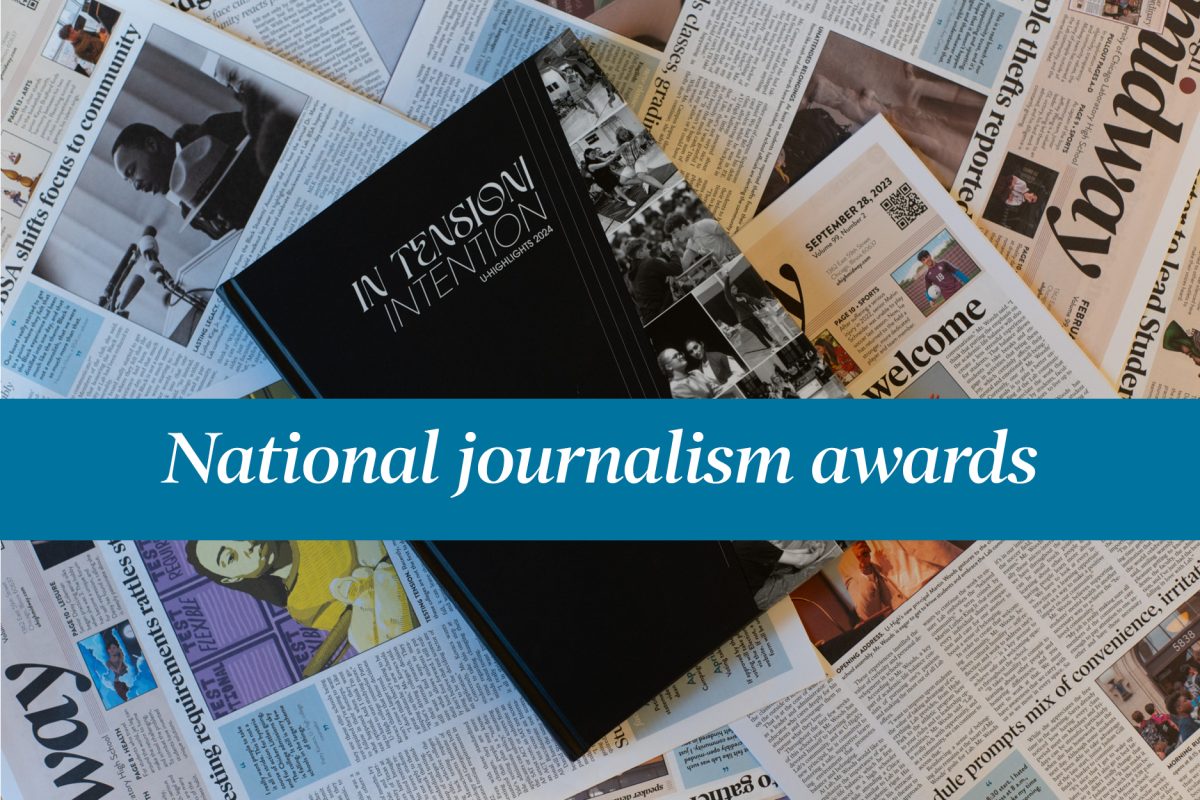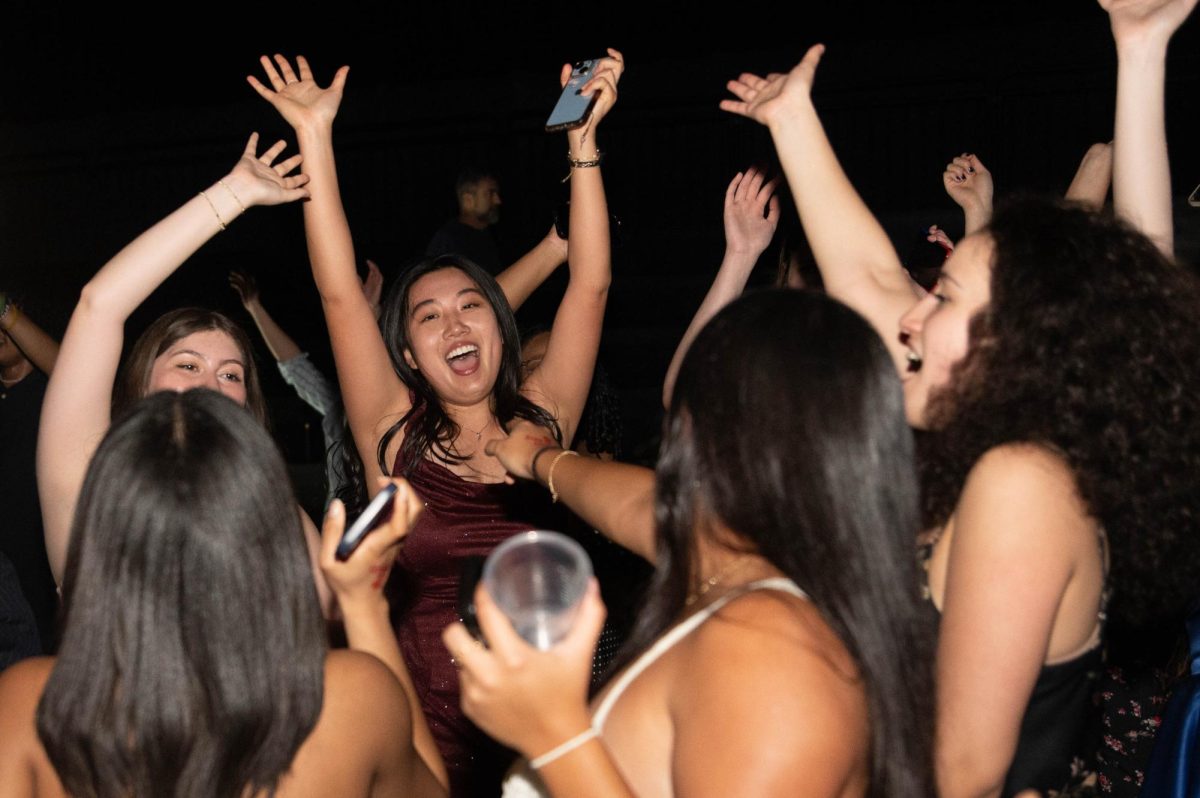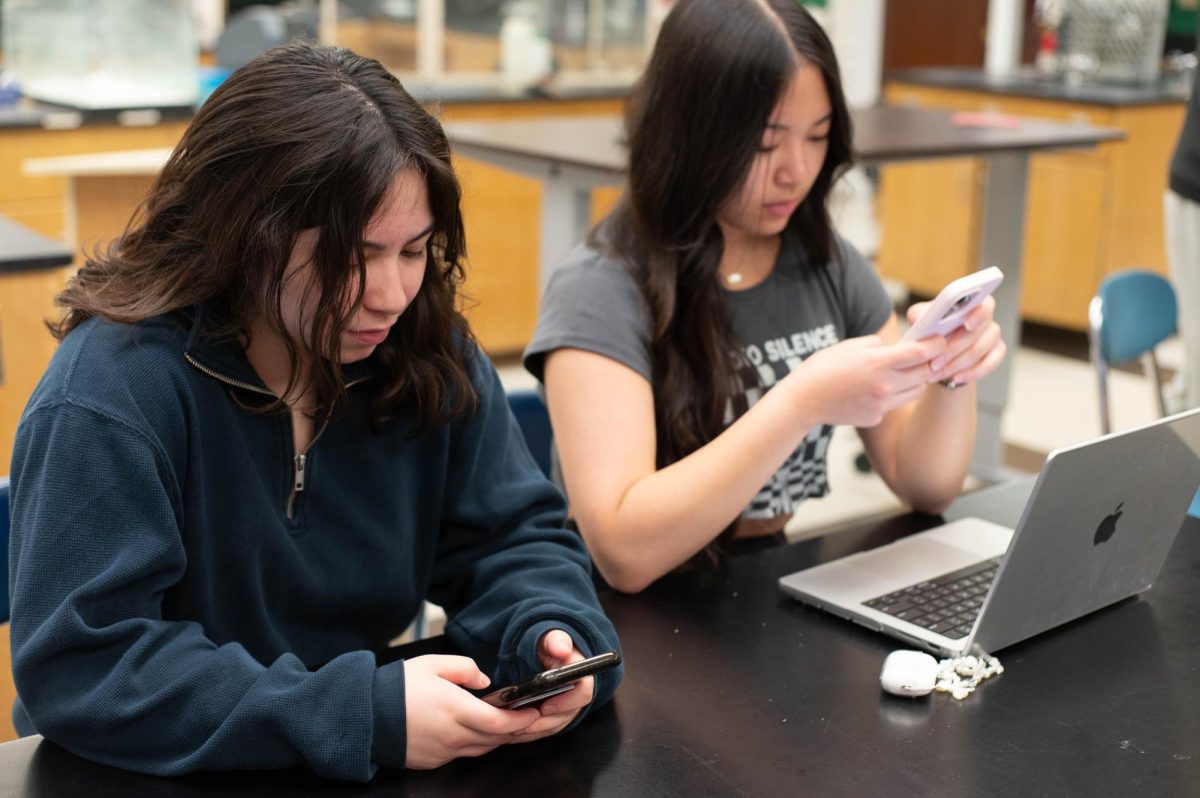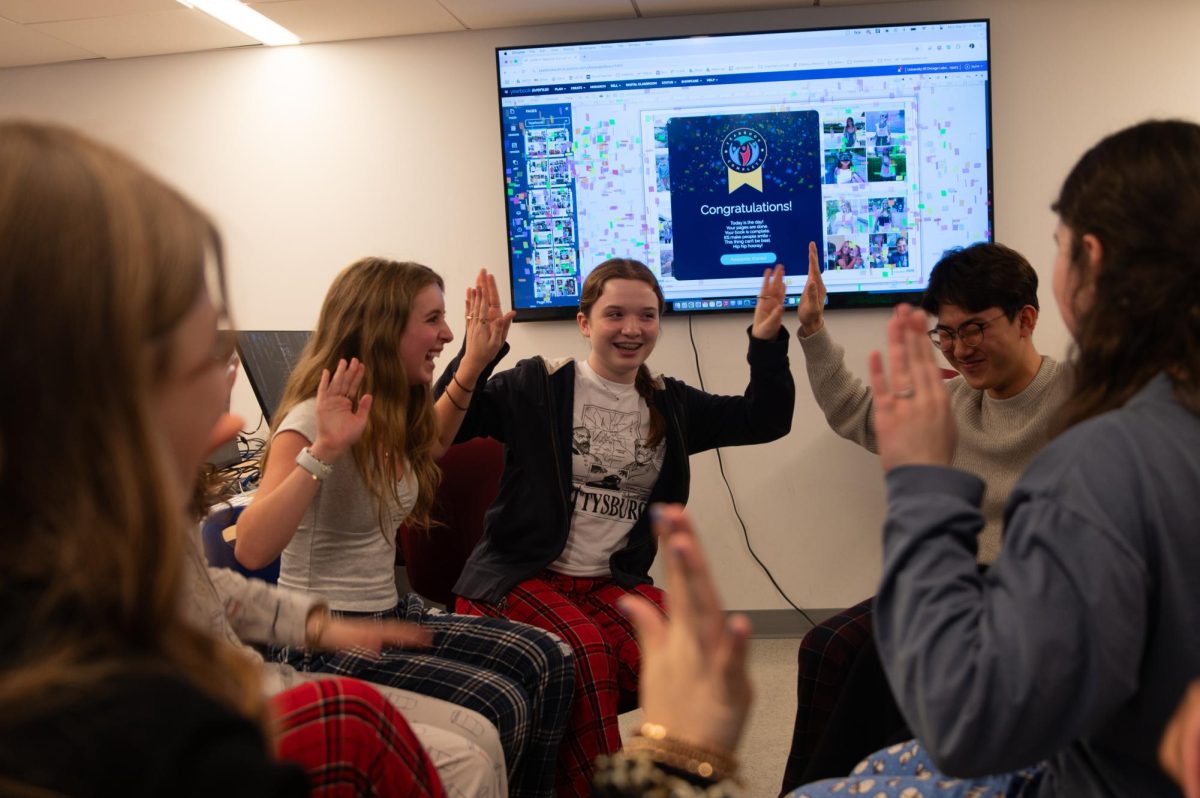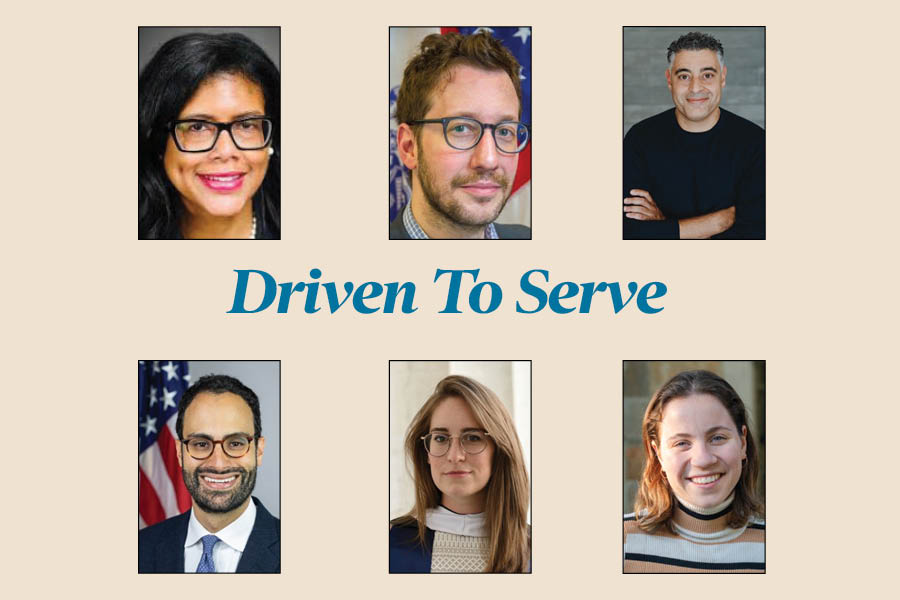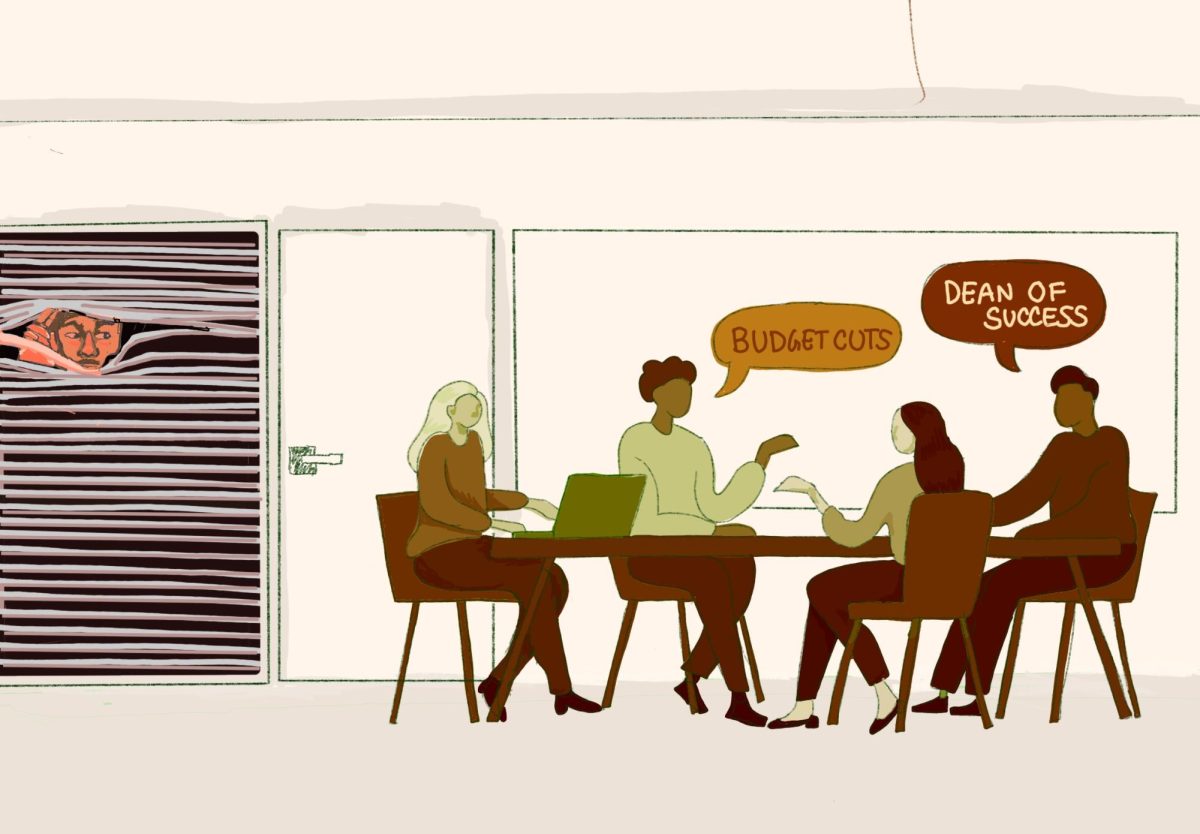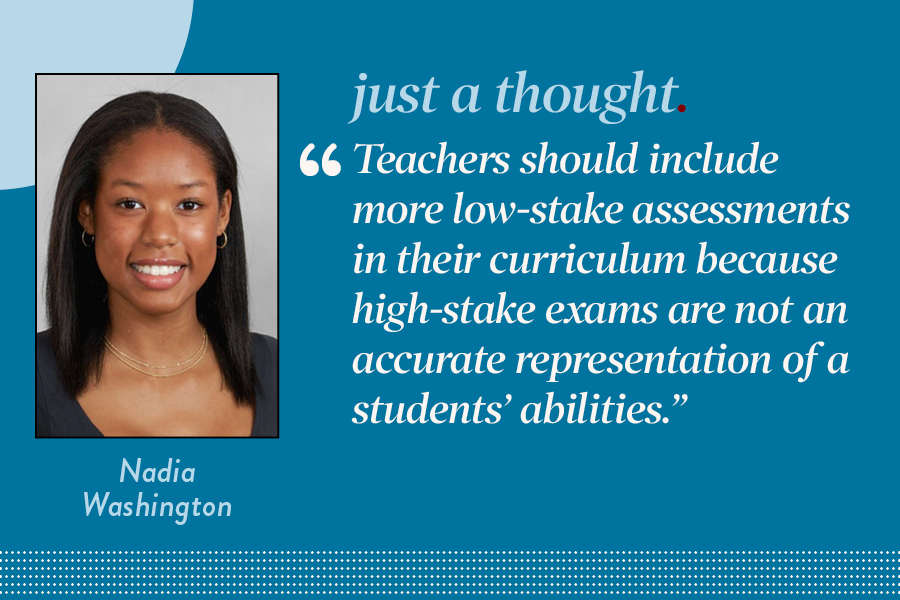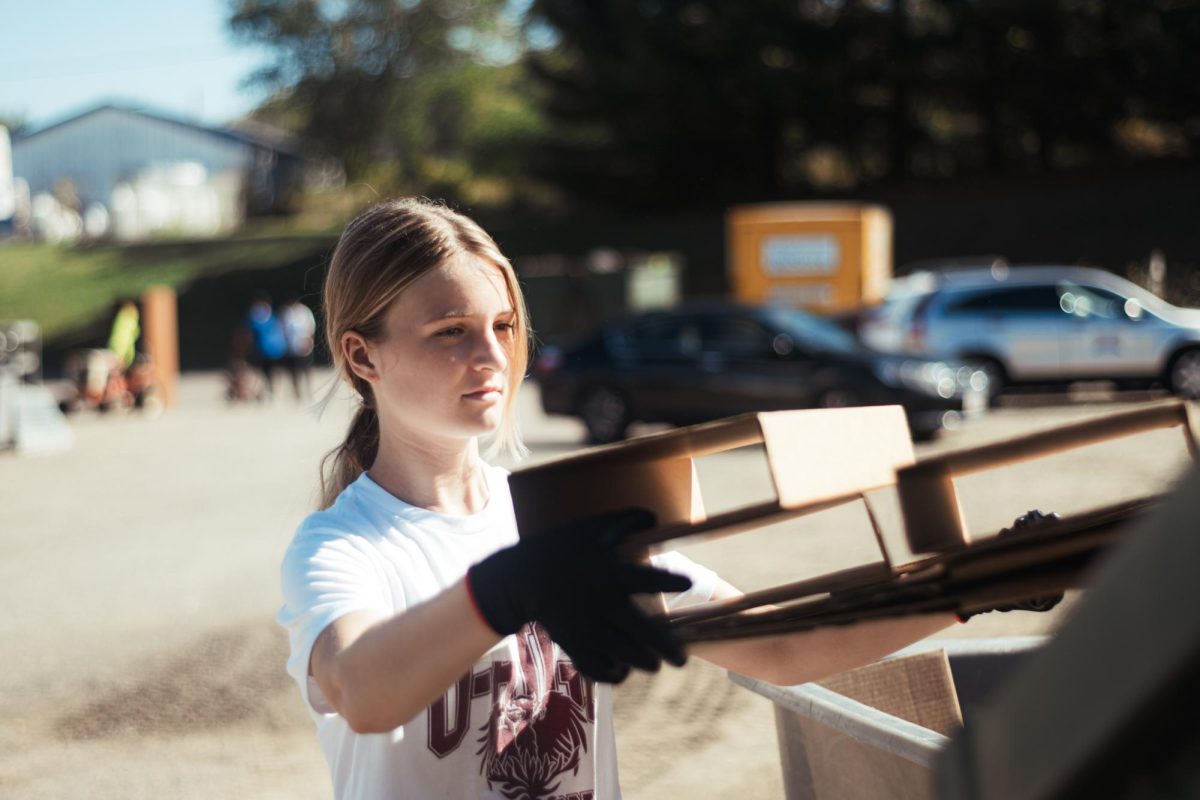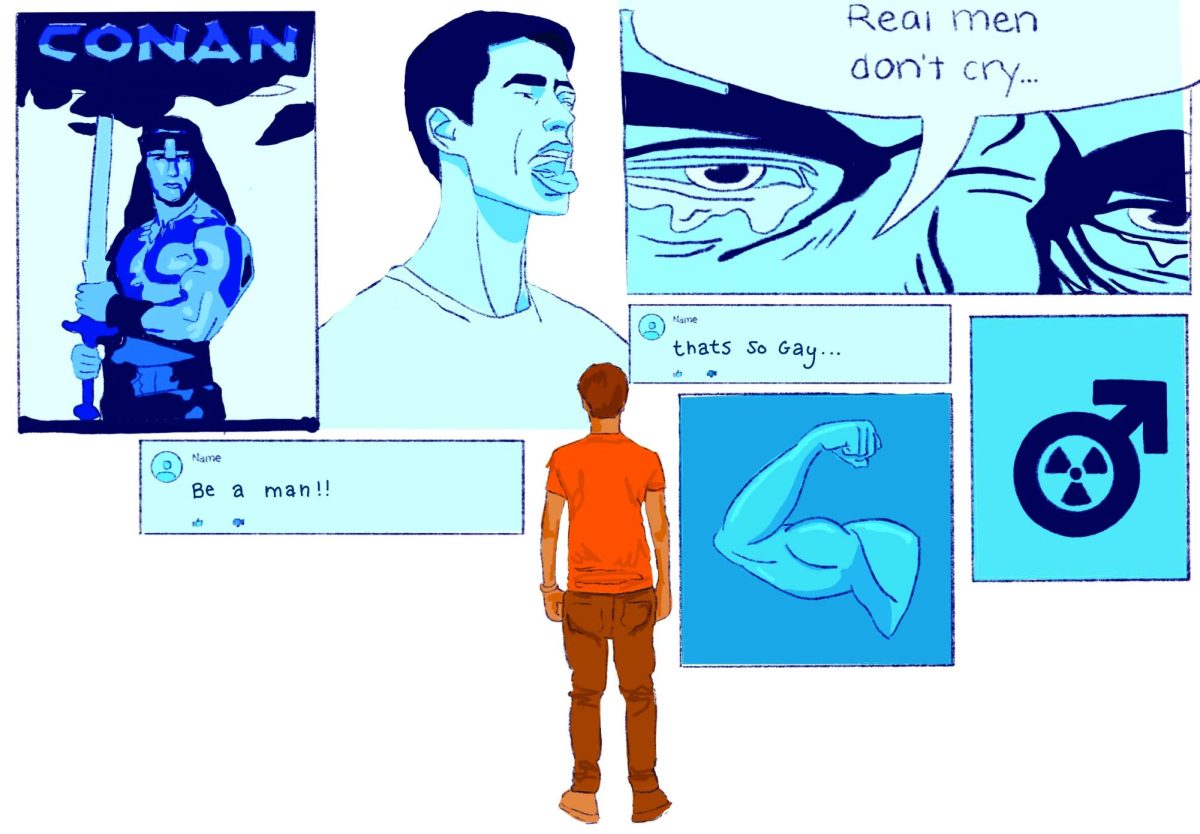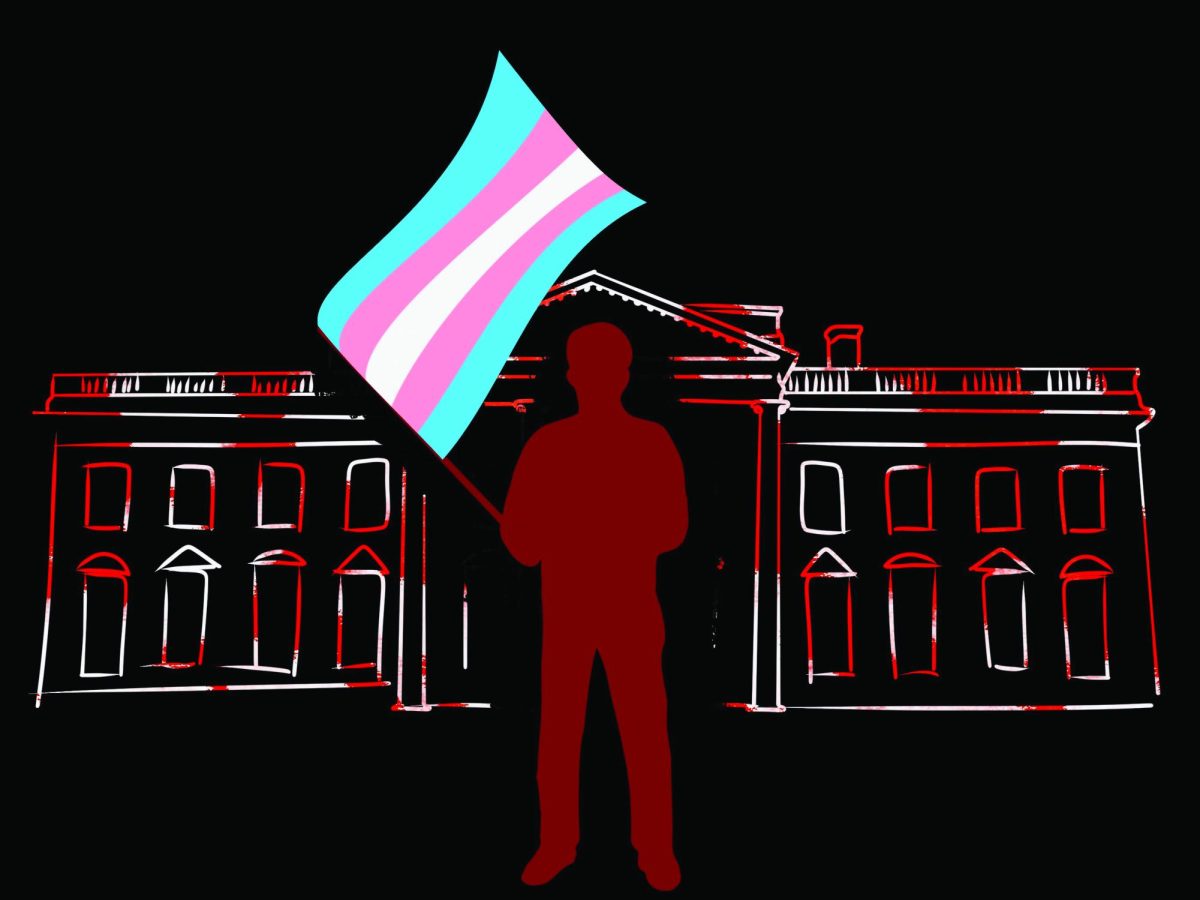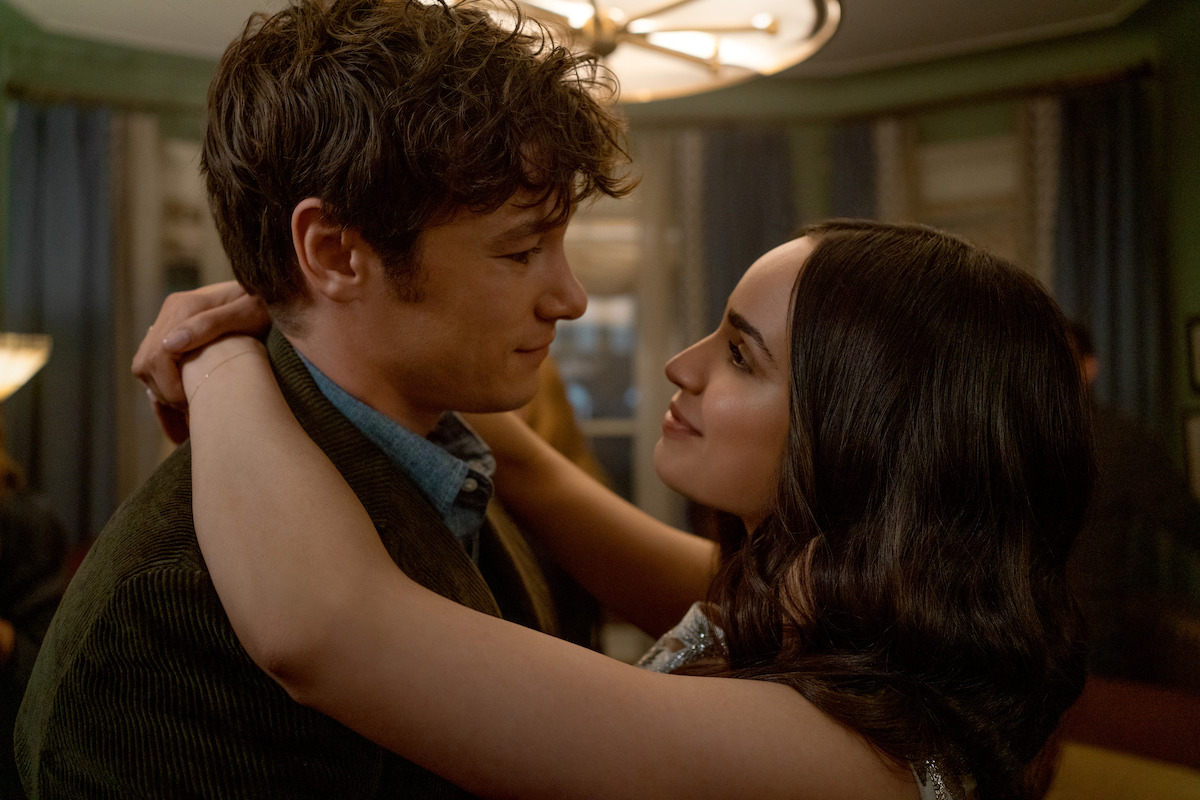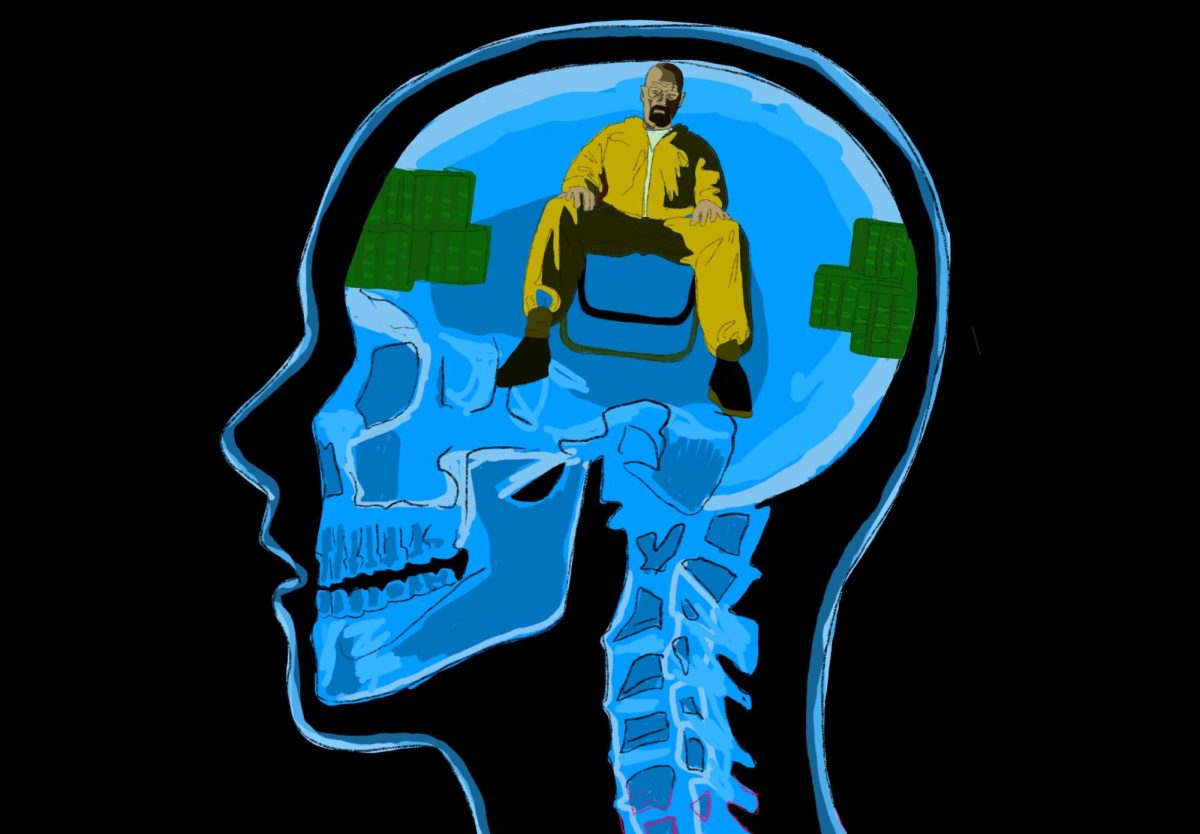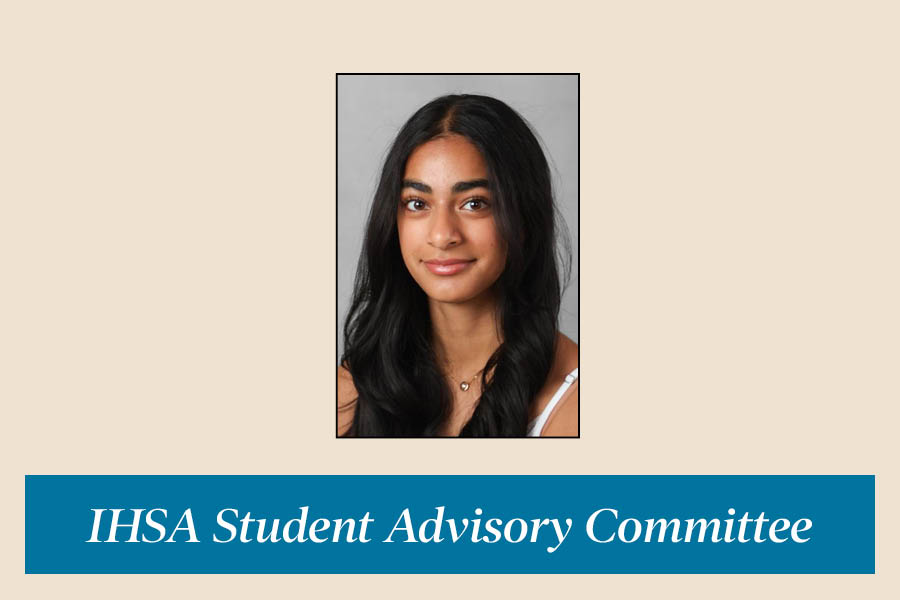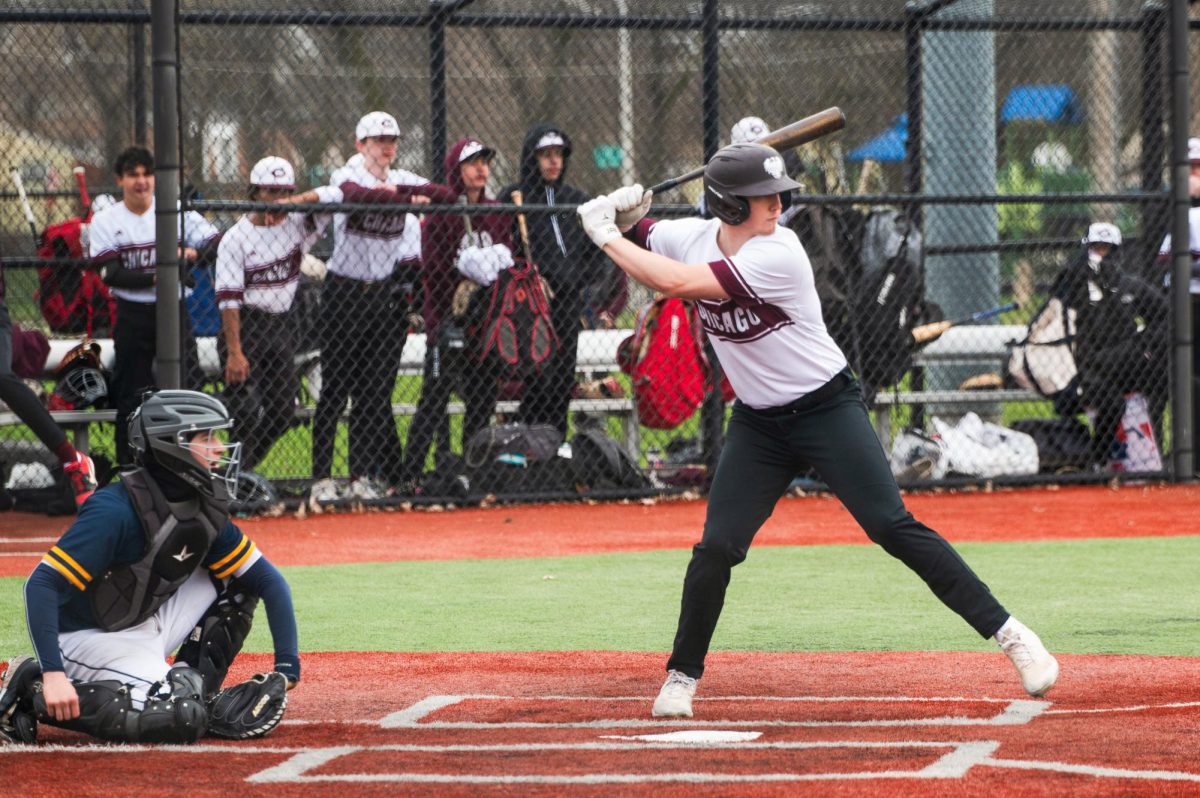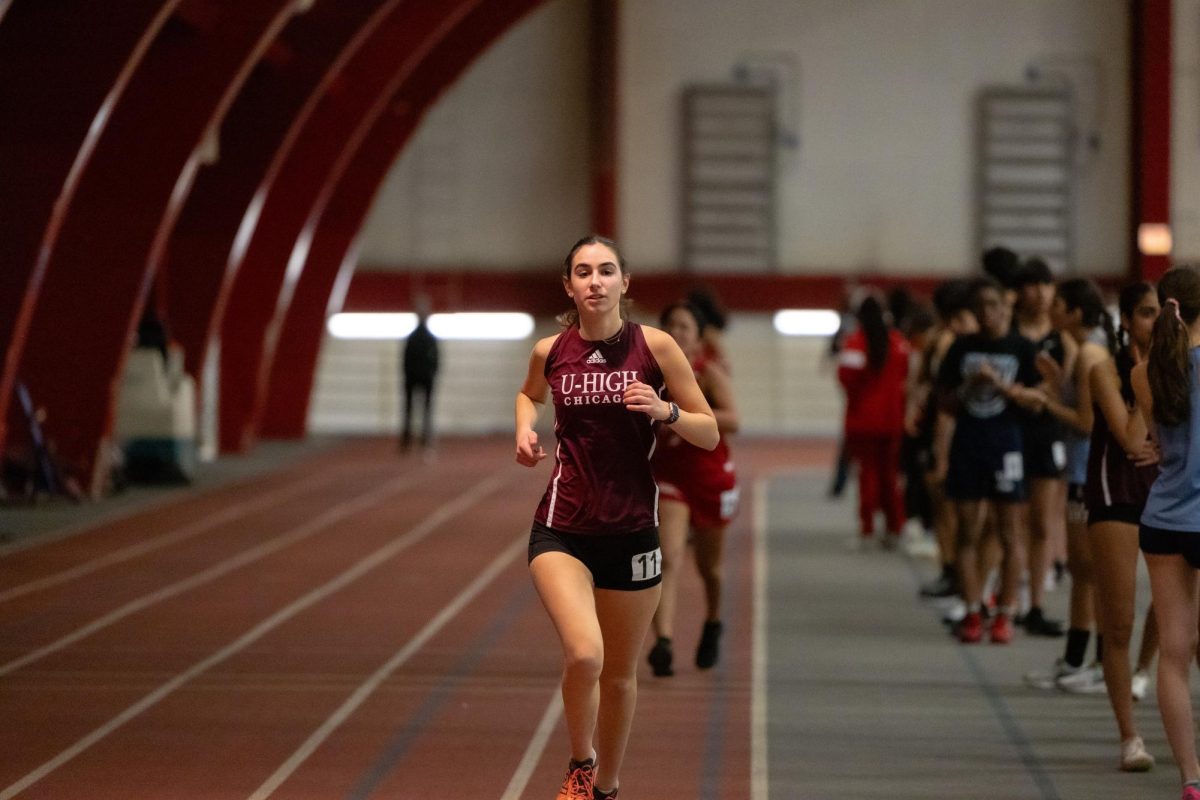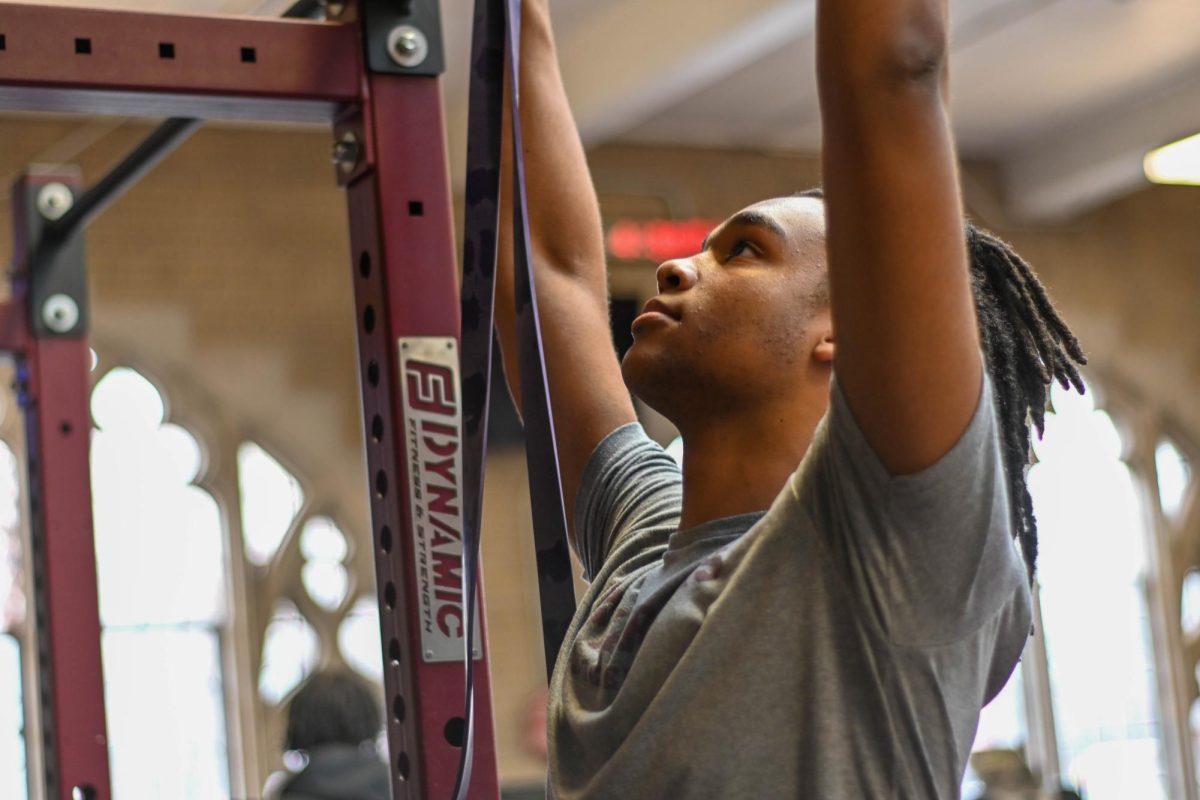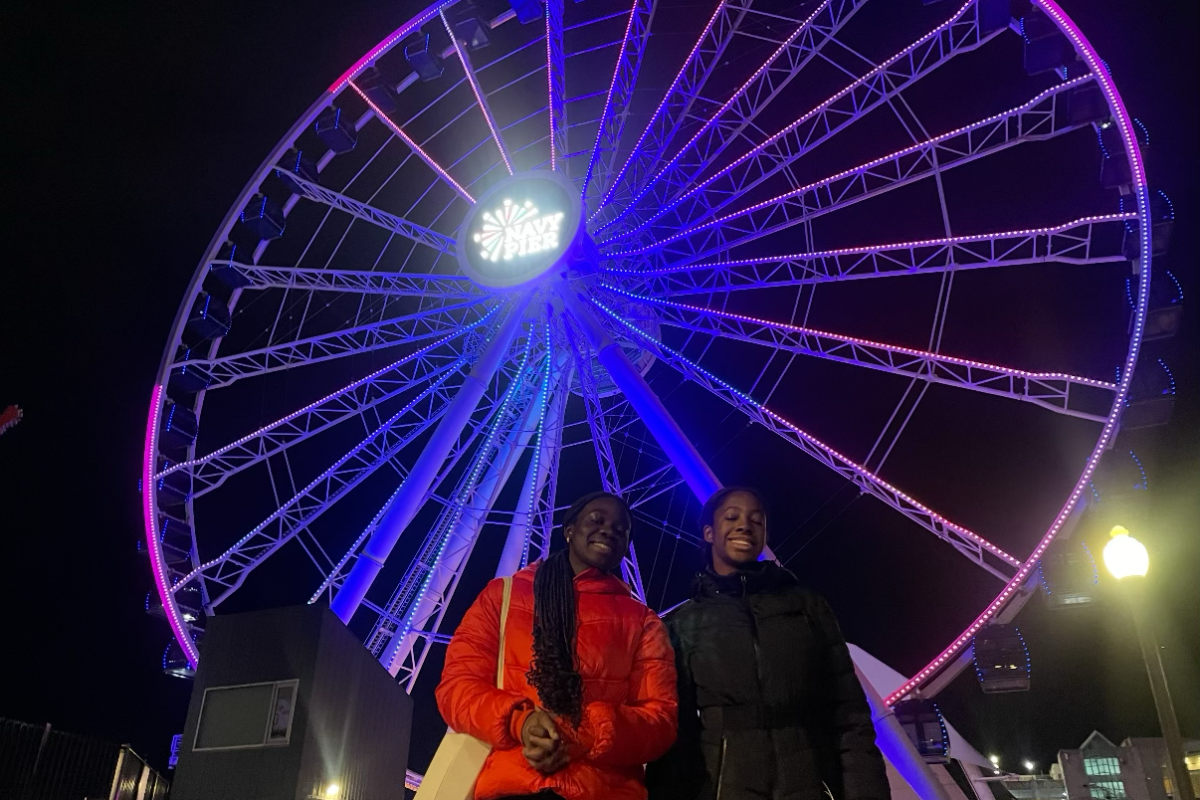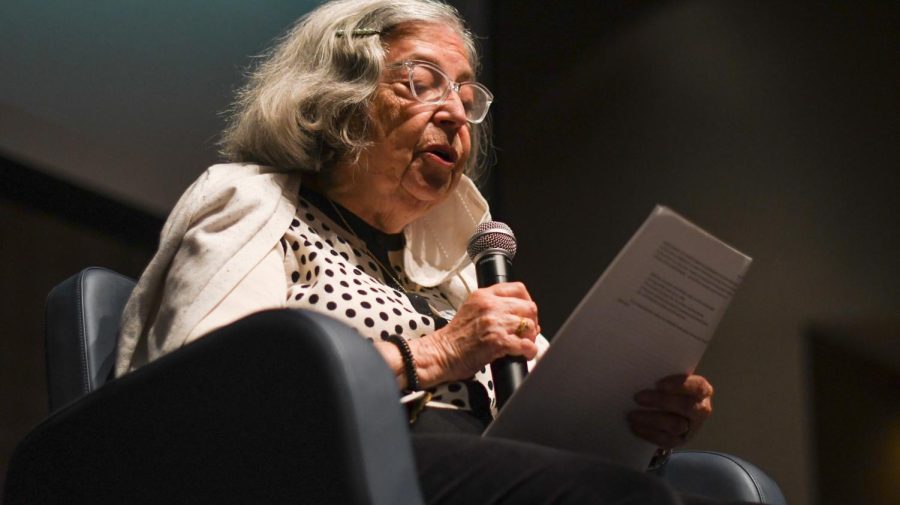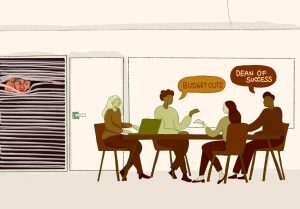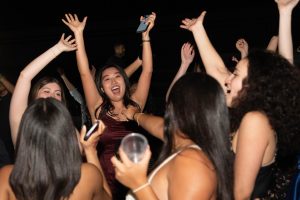In Holocaust Remembrance Assembly, JSA calls on greater inclusivity from affinity groups, students
Holocaust survivor Susan Meschel retells her experiences during the high school wide assembly on April 13.
April 18, 2023
At the Holocaust Remembrance Assembly on April 13, a Holocaust survivor shared her family’s harrowing experiences, students took part in small workshops and a leader of the Jewish Students’ Association gave a moving speech imploring students to recognize U-High’s Jewish community.
Holocaust survivor Susan Meschel, who was born in Hungary in the 1930s, described how her life was affected by the persecution and genocide of Jewish people during World War II. She recalled the day in 1944 when German troops marched into Hungary. She said she could still remember the song they sang as they arrived.
Ms. Meschel told students about an uncle who repeatedly defied Nazi forces, at one point refusing to evacuate Jewish families from apartments that the Nazis wanted to occupy.
“I was very proud of him for taking action in a seemingly hopeless situation,” she said. “He is the only person I ever met who said ‘no’ to the Nazis, and survived.”
In the assembly’s closing remarks, JSA co-president Charlie Benton spoke passionately about his experience at Lab as a Jewish student. He spoke of an incident at Lab where he had German Nazi propaganda chanted at him, and he told how the Jewish community felt excluded from the conversations in U-High diversity, equity and inclusion efforts.
“So here’s what we’re asking you, for the absolute bare minimum: to see us as a community,” Charlie said. “See us as a religious and cultural affinity group that is more than the latkes that you eat during our holiday party, or the hamantaschen that you eat during Purim, or God forbid, the bagels that you eat every Friday.”
Students said that they were moved by Charlie’s speech and hopeful that it will bring change in the Lab community.
“I was impressed by Charlie’s passion during his closing speech,” Maxine Hurst, sophomore, said. “I think this assembly was an important and valuable way for the Jewish community at Lab to gain some of that recognition, and I would support more holocaust remembrance events in the future.”
After the speeches, students took part in workshops run by teachers, students and faculty. The workshops focused on the intersectionality of Judaism with a range of topics, from disabilities during the Holocaust to elements of antisemitism in fairy tales.
Maurice Newman, junior, attended English teacher Darlene McCampbell’s “Stories” workshop in which Ms. McCampbell read short stories about the Holocaust aloud and asked students to write down their reactions and responses.
“Before hearing these stories, I didn’t fully comprehend the impact that being separated from parents has on a child,” Maurice said.
Maxine attended the “Neurobiology of Hate” workshop run by science teacher Sharon Housinger. There, students learned about the mechanism behind how the brain forms subconscious associations between groups and emotions.
“It was valuable to get objective scientific information about concepts we were all aware of,” Maxine said, “and to hear clear suggestions of how to combat these subconscious biases.”


